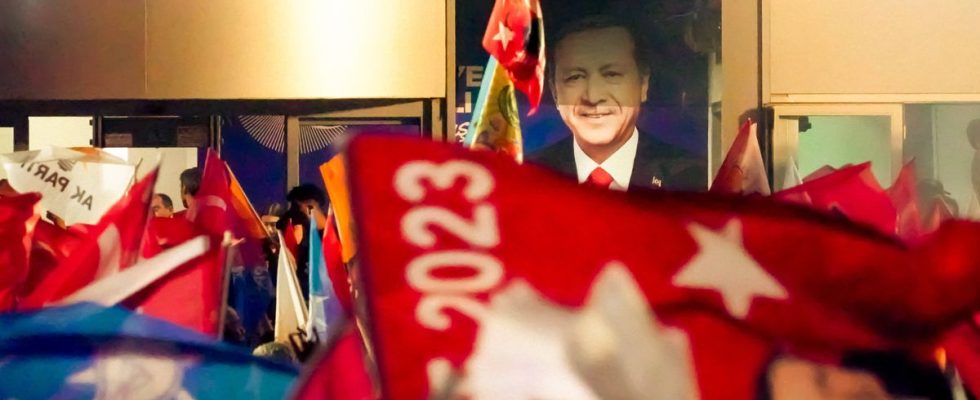In the aftermath of the re-election of Turkish President Recep Tayyip Erdogan, who regularly threatens to attack areas under Kurdish administration in northern Syria, concern prevails on Monday at the Qamichli market.
“As Kurds, we didn’t want Erdogan to be re-elected,” says Hozan Abu Bakr, owner of a clothing store in Kurdish who talks to his neighbors about the repercussions of the election in Turkey.
A fifth of the population
“We wanted Kemal Kiliçdaroglu [le candidat de l’opposition]not because he is better, but because he had allied himself with the Kurds and he is perhaps not as bad as Erdogan”, adds this 30-year-old man.
The Kurds in Turkey, about a fifth of the country’s 85 million inhabitants, voted mainly in favor of Kemal Kiliçdaroglu, the leader of the Republican People’s Party (CHP, social democrat), beaten by Erdogan on Sunday.
Throughout the electoral campaign, the incumbent president continued to attack his rival calling him a “terrorist”, because of the support given to him by officials of the pro-Kurdish HDP party.
Erdogan steps up offensives against Kurds
People without a state, the Kurds are divided between Turkey, Iraq, Syria and Iran. Thanks to the war in Syria, they established an autonomous administration in large areas of the north and north-east of that country.
But they are worried that the Turkish president will carry out his repeated threats to attack these Kurdish areas, and also fear a rapprochement between Damascus and Ankara for which they would pay the price.
Turkey has launched three offensives on Syrian soil since 2016 against Kurdish forces in the north, which have allowed it to control a border strip 120 kilometers long on the Syrian side. Ankara also carried out a campaign of raids against Kurdish fighters in northern Syria in November and threatened a ground offensive.
A Turkish-Syrian rapprochement?
“Erdogan’s victory is undoubtedly a negative development for the Kurds, especially in Syria,” analyst Mutlu Civiroglu, a specialist in the Kurdish question, told AFP. According to him, the Syrian Kurds will face “more drone attacks and the rise of Syrian armed groups supported by Turkey”.
Erdogan has tried in recent months to get closer to his Syrian counterpart Bashar al-Assad, in particular thanks to Russian mediation, which, according to the analyst, constitutes “another concern for the Syrian Kurds”.
“We cannot predict Erdogan’s actions, but any rapprochement between him and Bashar al-Assad will be at the expense of the Kurds,” Saleh Muslim, who co-chairs the PYD, told AFP.

